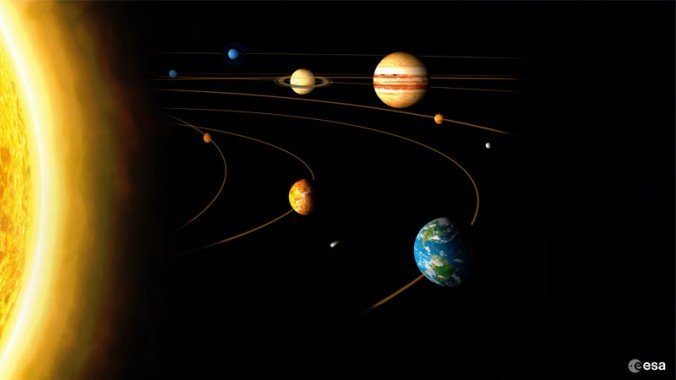When I was in kindergarten, I was fascinated by outer space. While other kids were into pro wrestling, cartoons, or dinosaurs, I was dragging my parents on near-weekly treks* to the local planetarium. I had a personally-autographed picture of Clyde W. Tombaugh (discoverer of Pluto) on the wall in my room. I was a weird kid.
Like every other elementary school student in America, I was required to participate in the science fair. Given my obsession with the planets, I wanted nothing more than to show off all of the things I knew about the solar system. I won’t get into embarrassing details about the process of constructing my display, but let’s just say that I was unusually proud of my cotton-foamcore-glue-glitter masterpiece.
The memory of the day is a little blurry, but I’ll never forget the feeling of running up to my project and seeing the second place ribbon on it. As a kindergarten kid competing against everyone up to the third grade, I was so proud to have won second place. What an accomplishment against the bigger kids! My first award! I could hardly contain my excitement.
My next memory is of finding the first-place winner, a third grader’s project that was also about the solar system. But, wait… Her colors weren’t right (Saturn isn’t blue-green!). Her Pluto was beyond Neptune (nope). She didn’t have an asteroid belt. I went from being very proud to being very confused – if she got these things wrong, and I got them right, then why did she win first place?
When my parents came to pick me up, I told them about how I won second (yay!) and how the girl who won first got a lot of things wrong (boo!). In good Millennial-parent fashion, they approached those in charge about the decision to ask about the disparity. The judges immediately dressed my parents down for doing the work for me. “What kind of lessons are you trying to teach your son?” they asked. “Is it so important for him to win a science fair that you have to do the work for him?” Despite my parents’ best attempts, the judges refused to believe that I did the work. Worse, they saw me as a cheater instead of a kindergarten kid who really, really, really loved the stars. I was devastated.
This James Harrison Facebook post, and the ensuing debate over participation trophies, sparked the memory.
Every time the “kids these days” subject comes up, a.k.a. Millennials in the workforce, the debate over trophies renews. Largely, there are two camps: the EARN IT crowd, that believes that participation trophies make kids soft and entitled to something that they didn’t necessarily deserve; and the ENJOY IT crowd, that believes that building confidence in kids is important to their ability to try new things and forge their own path, recognizing participation being part of that process. As with most public debates, there is no middle ground.
I recently went through the trophies and awards that my parents had packed away for me. Some of them were for participation (so much for the adage “80 percent of success is showing up”), others were well-earned first-place awards. It was great to go through them, of course, but I ultimately threw every one of them away. Well, except for that framed ribbon from the science fair. I kept it because it represented one of the most challenging life lessons that I’ve learned; that sometimes, even if you do your best, and even if you get the results, you might not win. Further, in the vast majority of life, winning (whatever that means, anyway) is based upon factors that are out of your control. Yes, work hard. Yes, do your best. And yes, if you’re failing, you either need to get better or do something else. Finally, it also taught me that losing is okay, too.
My verdict on trophies is this: they’re only as good as the meaning you give them. Teach kids to value the award over the effort, and they’ll grow into adults who value the appearance of success rather than the work it takes to get there. Ultimately, that meaning is a an infinitely-better reflection of your values than any piece of hardware you could ever earn, or get for just showing up.
* Pun alert – Gene Roddenberry (creator of Star Trek) was born in my home town of El Paso, Texas.

Leave a Reply